Did you know walnuts, pistachios, and pecans each offer unique health benefits? Discover which nut packs the most powerful punch for heart health, weight management, and brain function, and learn how choosing the right one can transform your wellness routine.
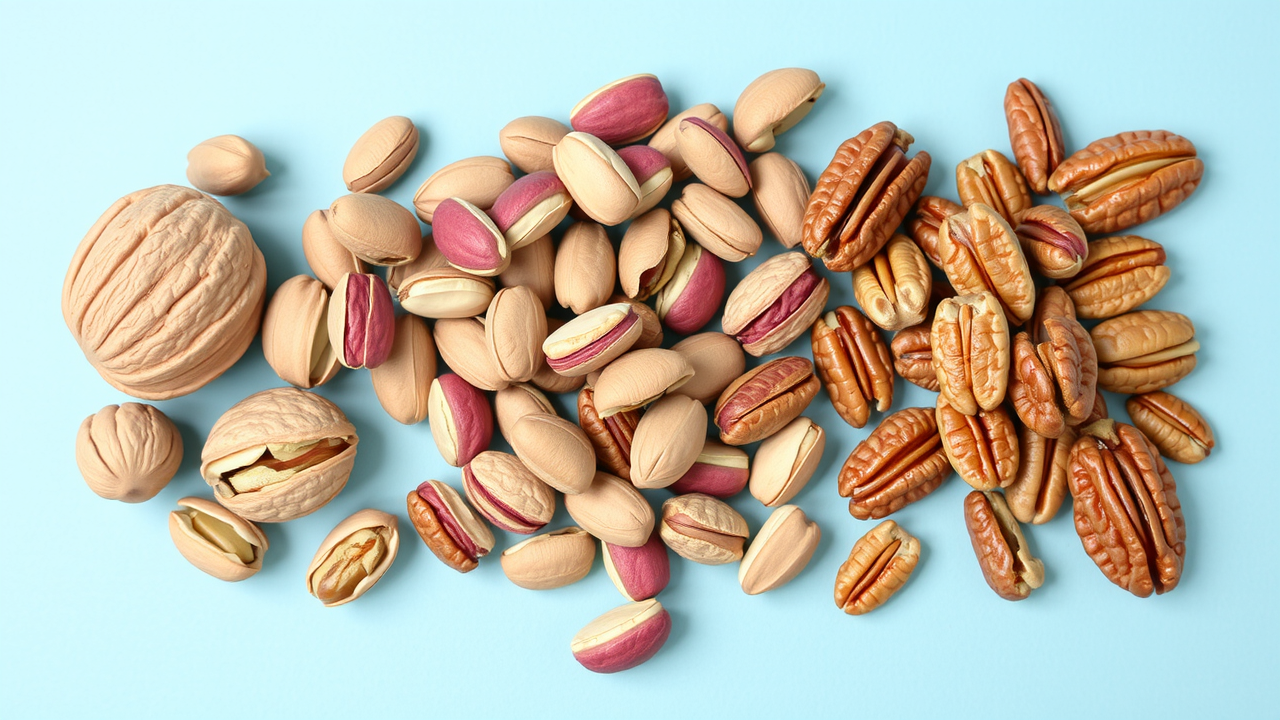
Whether you want to protect your heart, fuel your brain, or stay energized and trim, the right nut can make a real difference—let's explore how walnuts, pistachios, and pecans compare for optimal health benefit!
Introduction to Walnuts vs Pistachios vs Pecans
In the world of nuts and seeds, walnuts, pistachios, and pecans stand out for their remarkable health benefits. Not only are they delicious, but they are also nutritional powerhouses packed with healthy fats, fiber, protein, and a range of vitamins and minerals. As more people seek natural ways to boost wellness and prevent disease, understanding the unique advantages of each nut is key to making informed choices about your diet. When it comes to heart health, weight management, and brain function, knowing which nut to choose can help you eat smarter for your specific goals.
Each of these tree nuts provides a distinctive set of nutrients and beneficial compounds. Walnuts are celebrated for their high content of omega-3 fatty acids, pistachios for their protein and weight management benefits, and pecans for their antioxidant strength, particularly when compared to pine nut, brazil nut, and macadamia nuts. In this guide, we’ll break down all you need to know about walnuts vs pistachios vs pecans so you can confidently pick the right snack or ingredient for a healthier you.
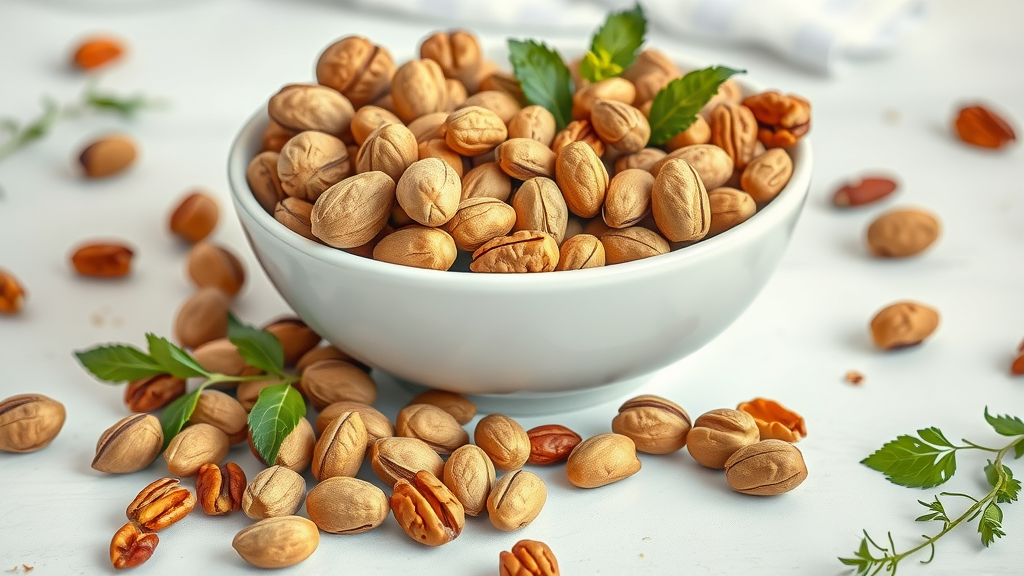
Did you know walnuts, pistachios, and pecans each offer unique health benefits? Discover which nut packs the most powerful punch for heart health, weight management, and brain function, and learn how choosing the right one can transform your wellness routine.
What You’ll Learn About Walnuts vs Pistachios vs Pecans
The unique health benefits of walnuts, pistachios, and pecans
How these nuts compare nutritionally
The effects of each nut on heart health, weight management, and brain function
Practical tips to include more nuts and seeds in your diet
Expert insights and surprising facts
Overview: Nuts and Seeds for Health
Nuts and seeds—such as walnuts, pistachios, pecans, macadamia nuts, brazil nuts, and pine nut—are technically classified as the edible kernels enclosed in hard shells. While some, like peanuts, are technically legumes, tree nuts are celebrated for their robust nutritional profile. These foods are a good source of heart-healthy fats, plant protein, essential vitamins, and minerals, as well as antioxidants that help reduce disease risk.
Consuming a variety of nuts and seeds has been linked to improved gut health, reduced risk of heart disease, and support for overall wellbeing. Their nutrient density makes them ideal for snacking, topping salads, or enhancing breakfast bowls. For maximum benefit, nutritionists recommend eating nuts raw or dry-roasted, as oil-roasting can add unnecessary saturated fat and calories. Portion size is critical—aim for a small handful, or about 1–2 ounces of nuts per day, to reap all the health benefits without overindulging in calories.
For those especially interested in the heart-protective qualities of nuts, understanding the specific role of omega-3 fatty acids is essential. You can dive deeper into how omega-3s support cardiovascular wellness and why walnuts are a standout source by exploring the science-backed benefits of omega-3s for heart health.
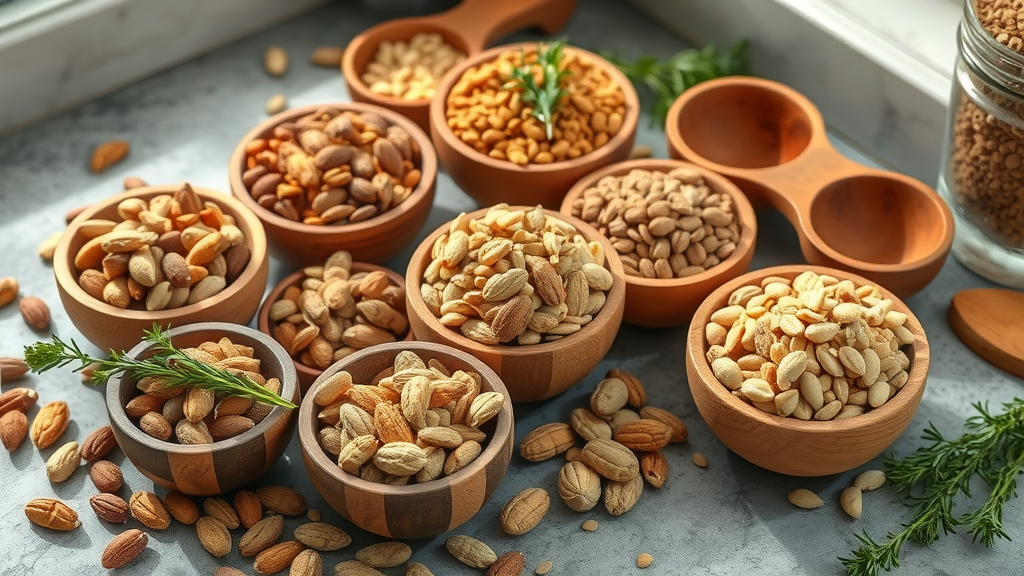
Nutritional Comparison Table: Walnuts vs Pistachios vs Pecans
Nutrient (per 1 oz/28g) |
Walnuts |
Pistachios |
Pecans |
|---|---|---|---|
Calories |
185 |
159 |
196 |
Protein |
4.3g |
5.7g |
2.6g |
Fiber |
1.9g |
3g |
2.7g |
Total Fat |
18g |
13g |
20g |
Omega-3 Fatty Acids |
2.5g |
Trace |
Trace |
Monounsaturated Fat |
2.5g |
7g |
12g |
Polyunsaturated Fat |
13g |
4g |
6g |
Vitamin E |
0.2mg |
0.8mg |
0.4mg |
Vitamin B6 |
0.2mg |
0.5mg |
0.1mg |
Magnesium |
45mg |
30mg |
34mg |
Copper |
0.4mg |
0.4mg |
0.3mg |
Walnuts: Health Benefits and Nutritional Highlights
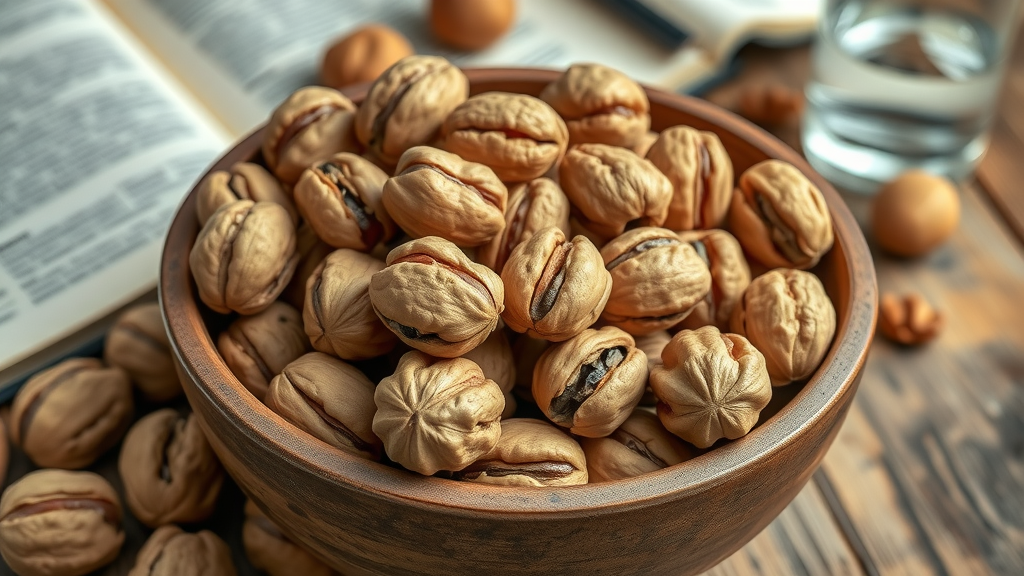
Walnuts for Heart Health and Omega-3 Fatty Acids
Walnuts are a powerful ally for supporting heart health thanks to their high content of omega-3 fatty acids, specifically alpha-linolenic acid (ALA). These plant-based omega-3s are rare among commonly eaten nuts and have been tied to a reduction in the risk of heart disease, as demonstrated in multiple studies from renowned institutions like Harvard Medical School. Adding walnuts to your diet can help lower LDL (bad) cholesterol, decrease inflammation, and improve arterial function. Cardiologists often recommend walnuts as a heart-healthy snack due to their beneficial effect on blood vessel elasticity and their ability to counteract harmful oxidative stress.
Role of walnuts in supporting cardiovascular wellness
Highest plant source of omega-3 fatty acids
“Walnuts are a superstar for cardiovascular health, packing the highest plant omega-3 content and proven cholesterol-lowering potential.” – Registered Dietitian
Brain Function and Cognitive Support
Among nuts and seeds, walnuts are most famous for promoting brain function. Their unique fatty acid and polyphenol profile provides potent antioxidant support, aiding in brain cell health and communication. Several studies link regular walnut consumption to improved memory, mental flexibility, and delayed cognitive decline, partly thanks to the combination of omega-3 fatty acids and vitamin E. This brain-boosting synergy is supported by research from leading medical school teams. Enjoying a handful of walnuts as a midday snack or adding them to breakfast oatmeal can enhance focus and memory over time.
How walnuts enhance brain function
Studies linking walnuts to improved memory
Eating nuts regularly for mental clarity
Additional Walnut Nutrients and Antioxidants
Walnuts offer more than just healthy fat. They are rich in vitamin E (gamma-tocopherol), polyphenols, and anti-inflammatory compounds, making them beneficial for cellular health and immune defense. The antioxidant content fights free radicals, reducing the risk of chronic illnesses. To maximize these health benefits, it’s smart to eat nuts raw or lightly toasted. Try combining walnuts with other nuts and seeds—such as pistachios, pine nut, and brazil nuts—for a nutrient-dense addition to salads, baked dishes, or yogurt bowls.
Vitamin E, polyphenols, and anti-inflammatory properties
Incorporating walnuts and other nuts and seeds into your diet
Pistachios: Health Benefits and Nutritional Highlights
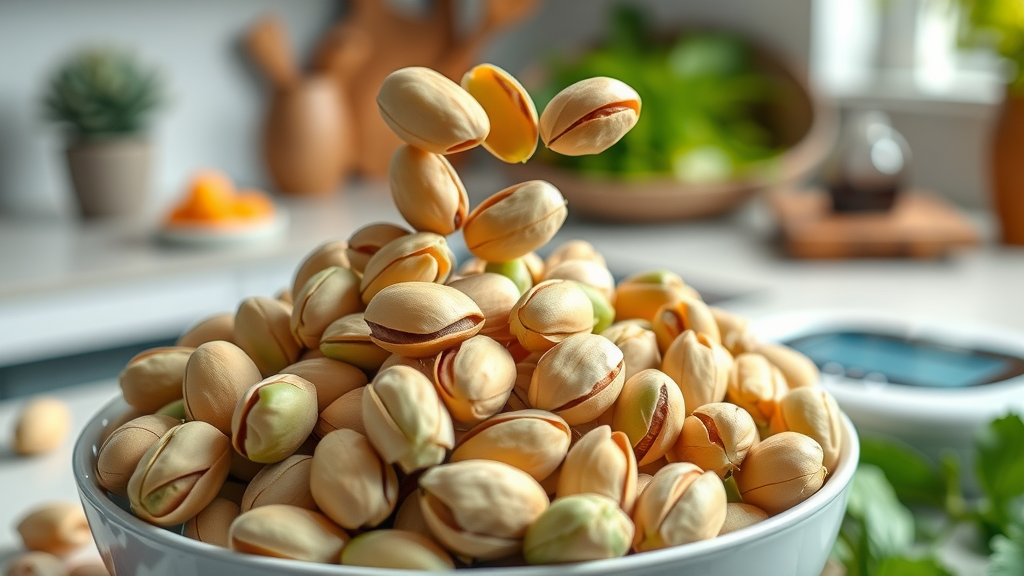
Pistachios for Weight Management and Satiety
With their unique blend of being low in calories and high in protein, pistachios are the standout nut for weight management. Compared to other nuts, pistachios deliver more protein per serving and, thanks to their fiber, help you feel fuller for longer—a crucial benefit for curbing cravings and maintaining a healthy weight. Studies have found that those who eat nuts, especially pistachios, tend to have lower body mass indexes. The ritual of shelling pistachios also slows down eating, encouraging mindfulness and portion control, which is vital for those watching calorie intake.
Low-calorie, high-protein nut for healthy snacking
Effects on fullness and reduced cravings
How to eat nuts for weight management
Pistachios and Heart Health
Pistachios contribute to heart health by providing unsaturated fatty acids, particularly oleic acid, which support lower cholesterol and healthier blood pressure. Research reveals pistachios may improve heart disease risk factors such as high LDL cholesterol and arterial stiffness. Their healthy fat and fatty acid profiles compare favorably to macadamia nuts and brazil nuts, making them an excellent dietary staple. Pistachios also contain carotenoids and phytonutrients with antioxidant power, fortifying cardiovascular defense even further.
Protecting the heart: healthy fats and fatty acid profile
Impact on blood pressure and cholesterol
Comparison with macadamia nut and brazil nut
Micronutrients and Antioxidants in Pistachios
Pistachios are one of the best nuts for micronutrients. They’re an excellent source of vitamin B6 (important for brain health and immune function), potassium (more per ounce than most other nuts!), and powerful antioxidants. These help support good gut health and immunity and may decrease the risk of inflammation-related chronic diseases. Mixing pistachios into salads or pairing them with fruit boosts your intake of these vital nutrients while adding flavor and texture to your meals.
Vitamin B6, potassium, antioxidants
Role in boosting immune function
Pecans: Health Benefits and Nutritional Highlights
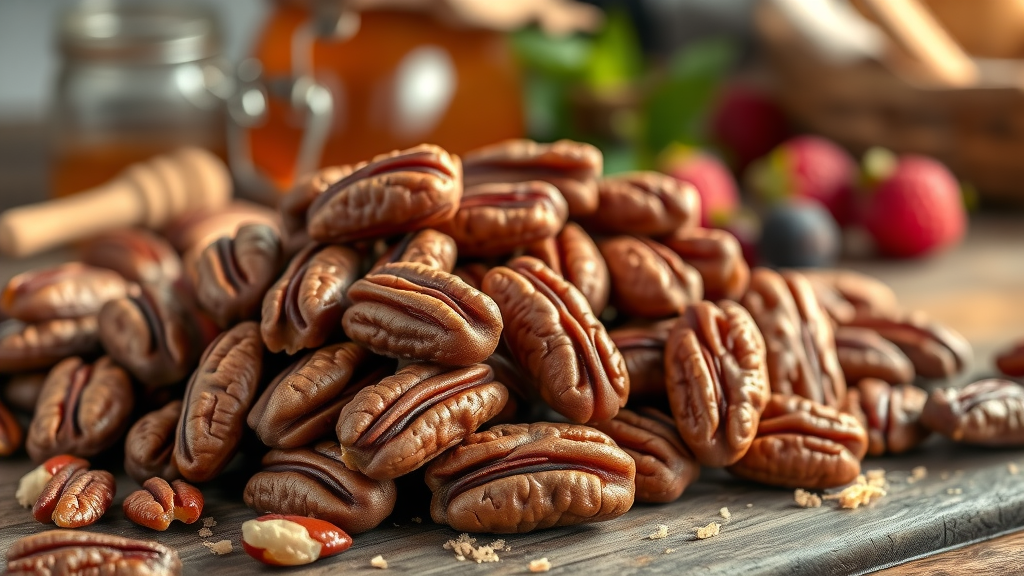
Pecans for Cholesterol Control and Heart Health
Pecans are champions at supporting cholesterol control and heart health thanks to their high concentration of monounsaturated fatty acids and plant sterols. Clinical studies suggest pecans may help reduce LDL cholesterol without lowering beneficial HDL, similar to how macadamia nuts and brazil nuts contribute positively to fatty acid profiles without excess saturated fat. Their impressive mix of unsaturated fat and antioxidants combats atherosclerosis and protects the heart’s blood vessels.
Impact on LDL cholesterol and heart health
Comparative fatty acids with other nuts and seeds
Pecans and Antioxidant Content
Pecans rank among the top nuts for antioxidant content. Rich in polyphenols, notably ellagic acid, as well as vitamin E, they deliver more antioxidant power than pine nuts or macadamia nuts, helping to battle inflammation and protect cells from oxidative stress. This antioxidant strength is especially helpful in reducing the risk of heart disease and supporting immune health, making pecans a smart choice for anyone seeking to ward off chronic conditions.
Rich in polyphenols and vitamin E
Antioxidant strength vs pine nut, macadamia nuts, and brazil nuts
Other Important Nutrients in Pecans
Pecans are excellent sources of manganese, copper, and zinc—trace minerals essential for energy production and immune function. Including pecans in your snacks or meals ensures greater nutrient diversity compared to sticking with a single type of nut. For balanced nutrition, combine pecans with walnuts or pistachios, toss them into a mixed greens salad, or pair them with fruit in your yogurt—great ways to eat nuts for a broad spectrum of health benefits.
Manganese, copper, and zinc
Ways to eat nuts for nutrient diversity
Walnuts vs Pistachios vs Pecans: In-Depth Nutritional Comparison
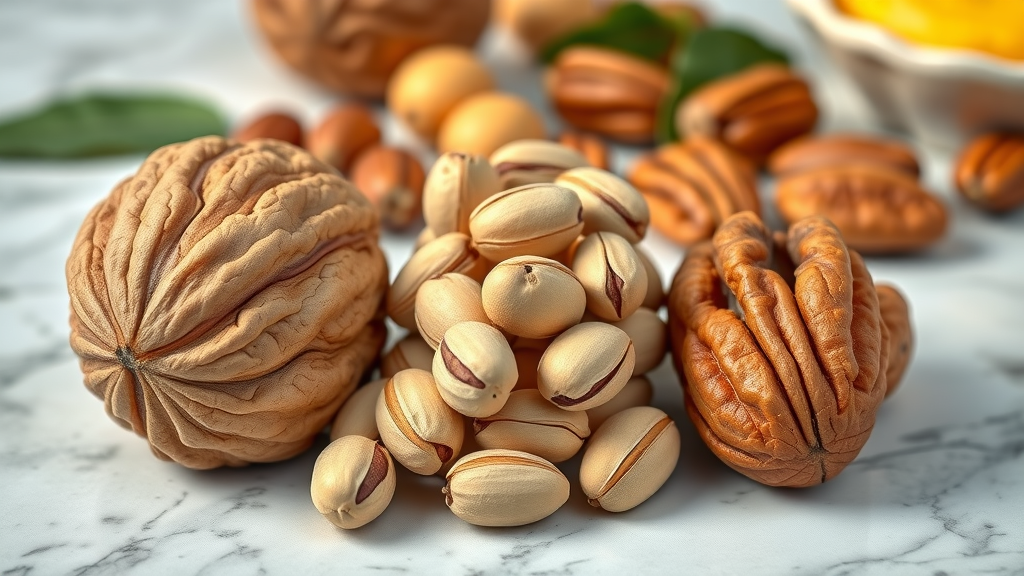
When comparing walnuts vs pistachios vs pecans, each nut demonstrates nutritional excellence but shines in different areas. Walnuts provide the most omega-3 fatty acids, crucial for brain and heart health. Pistachios boast the highest protein content and most fiber—key for muscle maintenance and gut health. Pecans offer unmatched antioxidant levels and healthy monounsaturated fats, great for lowering cholesterol and oxidative stress.
All are gluten-free and rich in micronutrients, such as vitamin E, B vitamins, magnesium, and potassium. For those seeking to eat nuts for specific health benefits—such as brain health, weight management, or cholesterol support—mixing these varieties is the best approach for dietary diversity and full spectrum wellness.
Their distinct fatty acid profiles, moderate calorie count, and protein make them compatible with plant-based, low-carb, and Mediterranean diets.
Walnuts vs Pistachios vs Pecans: Health Benefits Compared

All three nuts and seeds—walnuts, pistachios, and pecans—offer remarkable health benefits. Walnuts stand out for heart health and brain function due to their high omega-3 fatty acids content, making them the go-to nut for cognitive support and cardiovascular protection. Pistachios are best for those focused on weight management or blood sugar balance, given their superior protein, fiber, and antioxidant content.
Pecans triumph in the antioxidant realm, perfect for fighting inflammation and supporting healthy cholesterol levels. What unites them is their content of unsaturated fats, vitamins, and minerals that protect against disease and support vibrant, active living. According to registered dietitians and medical school research, regular consumption of nuts and seeds in moderation is associated with a lower risk of heart disease, improved gut health, and stronger immune function.
"While all three nuts offer significant health benefit, the best choice depends on your specific nutritional needs and health goals." – Registered Dietitian
How to Eat Nuts for Maximum Health Benefit
To eat nuts for optimal health, enjoy them raw or dry-roasted without excessive salt or sweeteners. Roasting can enhance flavor but may slightly reduce heat-sensitive vitamins—moderation is key. Portion control is critical; a small handful (1–2 ounces) of nuts per day provides maximum nutrition without unwanted calories.
Nut mixes, portion-control snack packs, or small jars make it simple to stick to recommended servings. Try adding them to salads, oatmeal, yogurt, or using ground nuts in baking. Always consider potential allergies and eat nuts as part of a balanced diet with fruits, veggies, and proteins for best results.
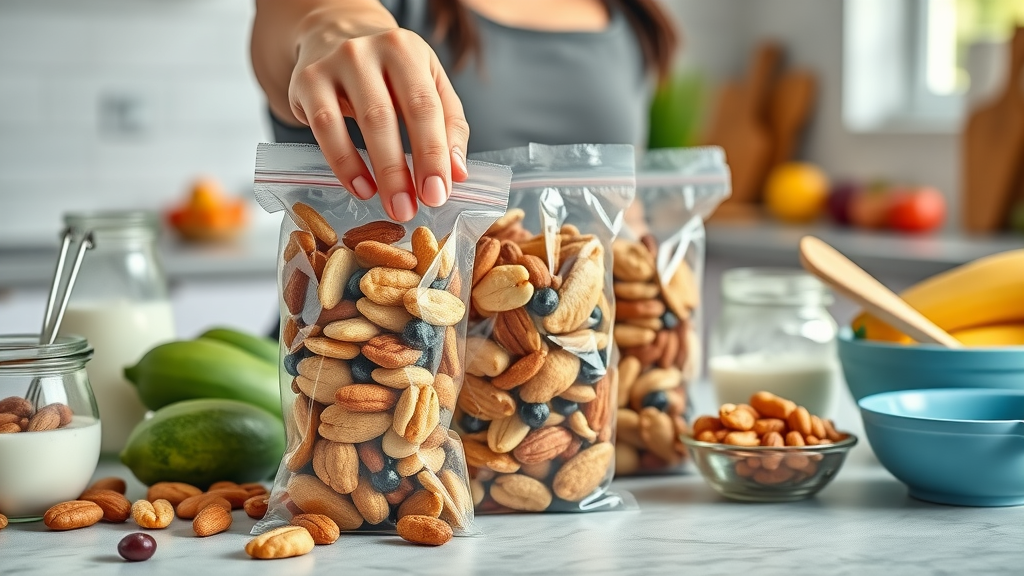
Popular Nuts and Seeds: Comparing Walnuts, Pistachios, Pecans and More
The nut family is vast, including not only walnuts, pistachios, and pecans but also pine nut, brazil nuts, macadamia nuts, almonds, hazelnuts, and cashews, all contributing unique health benefits. Macadamia nuts are valued for their buttery flavor and high monounsaturated fatty acids, supporting cholesterol control alongside pecans. Brazil nuts are a good source of selenium, an important antioxidant mineral.
Pine nut delivers plant-based omega-6 fatty acids and unique flavor. Comparing these, walnuts stand apart for omega-3s, pistachios for protein and fiber, and pecans for antioxidants—creating a synergy when added together in a daily nut mix or as a salad topper.
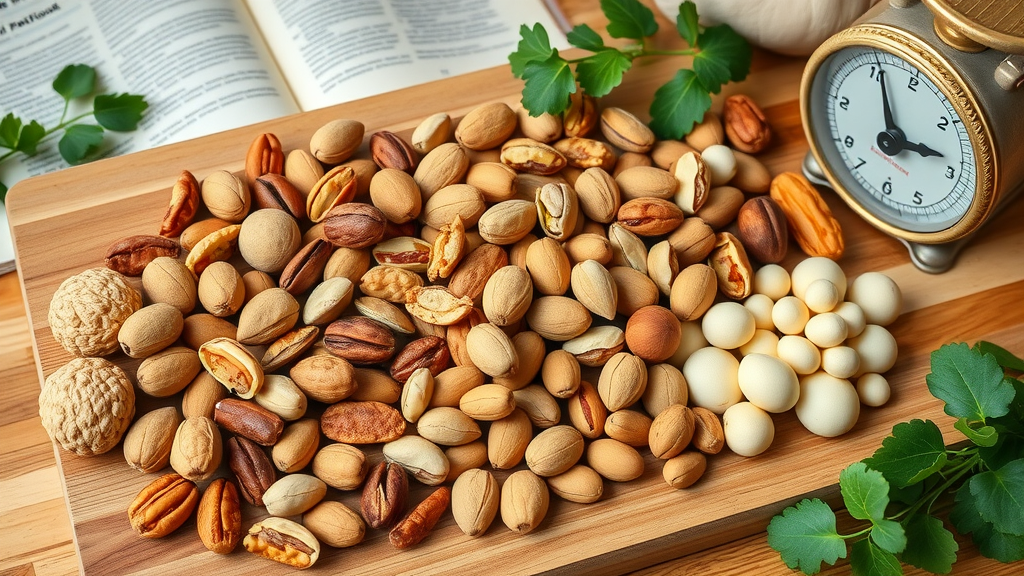
-
Other nutritious nuts and seeds for your diet:
Almonds
Hazelnuts
Cashews
Macadamia nuts
Brazil nuts
Pine nut
Watch a short, visually engaging educational video using infographics and close-up footage to explain the nutritional benefits, heart health impact, and unique qualities of walnuts, pistachios, and pecans. The friendly, modern style brings nutrition science to life for everyone.
People Also Ask: Walnuts vs Pistachios vs Pecans
Which nut is healthier, walnuts or pistachios?
Walnuts excel in omega-3 fatty acids, making them ideal for heart and brain health, while pistachios shine with the highest protein and fiber, supporting weight management and fullness. Both are rich in antioxidants and unsaturated fats, but walnuts may be preferable for cognitive and cardiovascular support, whereas pistachios are best for appetite control and snacking.
What is the number one healthiest nut?
No single nut is superior for all needs. Studies and expert recommendations suggest that walnuts, pistachios, pecans, brazil nuts, pine nuts, and macadamia nuts each offer specific health benefits. Walnuts often rank high for omega-3s and brain support, while almonds stand out for vitamin E and pistachios for protein. A variety is healthiest for most people.

Which is healthier, pecans or pistachios?
Pistachios contain more protein and fiber, ideal for satiety and muscle health, while pecans provide higher antioxidants and healthy fats for heart and cholesterol health. Choose pecans for maximum antioxidant benefit and pistachios for protein and weight control gains.
Which is healthier for you, walnuts or pecans?
Walnuts offer a unique source of plant omega-3s, crucial for brain and heart health. Pecans, in contrast, are packed with antioxidants beneficial for combating inflammation. In terms of heart health, both are beneficial, but walnuts are favored for their proven omega-3 content, while pecans may be better for those seeking antioxidant support.
Frequently Asked Questions About Walnuts vs Pistachios vs Pecans
Can you eat nuts every day?
Absolutely! Most nutritionists encourage eating a small serving of nuts or seeds daily for optimal health. Stick to 1–2 ounces and vary the types for maximum benefit.What are the key differences between walnuts, pistachios, and pecans?
Walnuts are highest in omega-3s and best for brain and heart health. Pistachios are top for protein, fiber, and weight management. Pecans are ideal for antioxidants and cholesterol support.How to store nuts and seeds for maximum freshness?
Store them in airtight containers away from heat and sunlight. Refrigeration or freezing extends shelf life, preventing oxidation and preserving taste and nutrients.
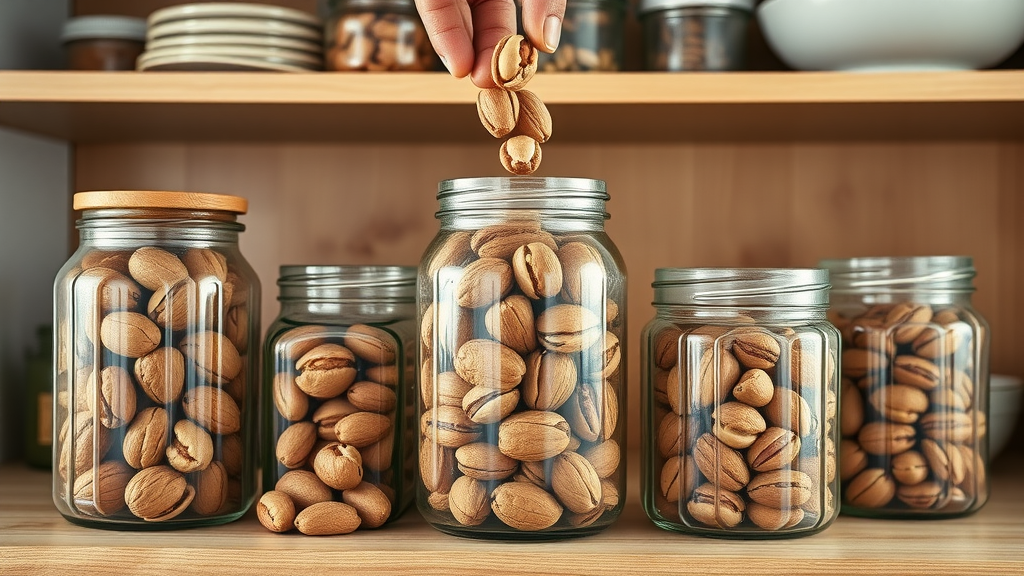
Key Takeaways: Walnuts vs Pistachios vs Pecans
All three nuts are healthy when consumed in moderation
Walnuts excel for omega-3 fatty acids and brain health
Pistachios are best for protein and weight management
Pecans are antioxidant powerhouses for heart health
Including a variety of nuts and seeds is the smartest approach
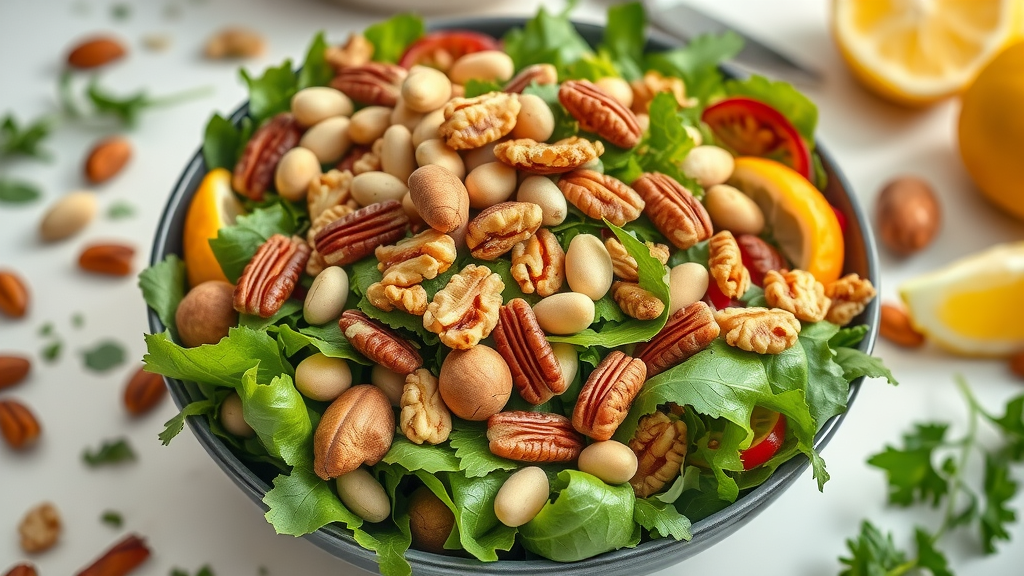
Conclusion: Choosing the Best Nut for Your Health
Each nut brings unique strengths to your diet: walnuts for omega-3s and mental sharpness; pistachios for satiety and protein; pecans for antioxidants and heart health. Consider your wellness goals and mix these nuts with a variety of nuts and seeds to fully benefit from their diverse nutrients.
Ready to boost your health with the right mix of nuts? Start incorporating more walnuts, pistachios, and pecans into your diet today!
If you’re inspired to take your nutrition journey even further, consider how your daily food choices impact your overall well-being. Tracking your nut intake and other healthy habits can be a game-changer for long-term results. Discover how keeping a simple food diary can help you stay mindful, set achievable goals, and unlock a healthier lifestyle by visiting this guide to starting a food diary for health. It’s a practical next step for anyone ready to make lasting, positive changes—one mindful meal at a time.
Sources
When considering the health benefits of walnuts, pistachios, and pecans, each nut offers unique advantages that can enhance your wellness routine.
Walnuts are renowned for their high content of alpha-linolenic acid (ALA), a plant-based omega-3 fatty acid. Regular consumption of walnuts has been linked to improved heart health, including reduced blood pressure and lower levels of LDL cholesterol. Additionally, their rich antioxidant profile supports brain function and may reduce the risk of cognitive decline. (healthline.com)
Pistachios stand out for their high protein and fiber content, which can aid in weight management by promoting satiety. They are also rich in antioxidants like lutein and zeaxanthin, supporting eye health. Furthermore, pistachios have been associated with improved blood pressure and cholesterol levels, contributing to overall cardiovascular health. (healthline.com)
Pecans are notable for their high levels of monounsaturated fats and antioxidants, which can help reduce LDL cholesterol and support heart health. They also provide essential nutrients like vitamin E and zinc, contributing to immune function and overall wellness. (healthifyme.com)
Incorporating a variety of these nuts into your diet can provide a broad spectrum of health benefits, from cardiovascular support to improved cognitive function.
 Add Row
Add Row  Add
Add 




Write A Comment